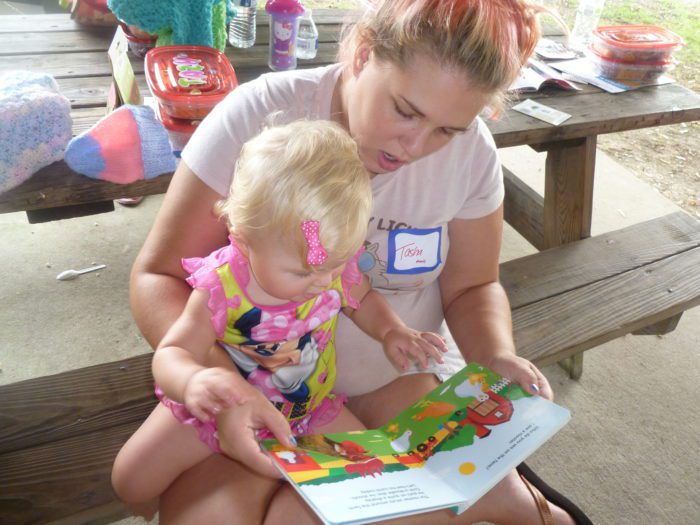
Three Ways Early Reading Benefits Infants’ Development
Members of the First Book community of educators work in many settings — schools, libraries, healthcare programs, and more. We all know that early reading is important and access to books for kids is essential. And we know that early intervention is important. The earlier a child is exposed to books and reading, the more likely they are to become a reader for life.

But, do we know what actually happens in the brain of a newborn that makes reading to them from birth a critical part of their development?
Recent reports tell us three ways early reading can literally change the course of a child’s life:
1. Early Reading Promotes Brain Development
A newborn baby brings much joy and often a good dose of anxiety to new parents. We all know there is no handbook for raising a child, yet science tells us that the first 3 years of life are the most rapid period of growth for a person. From laying in a crib to crawling to walking and then running, a child’s physical body is growing at a rapid rate. Their brains are growing even faster — hidden behind their giggles is a brain that is fast at work.
Born with about 100 billion neurons (the cells that receive, process, and transmit information in our brains), babies are actively working to make sense of the world around them. These neurons have the ability to connect with each other and form neural pathways — the foundation for learning. Reading aloud to babies, and using language promotes the development of these pathways, and the more pathways a child develops, the more they will be able to learn as time passes by.
2. Early Reading Builds Vocabulary
The more language a child hears – from reading books, talking, singing songs, and more – the more words they have exposure to. The more words a baby hears, the stronger their cognitive development. According to a study led by Dr. Carolyn B. Cates, researchers found that the quality and quantity of book reading in early infancy influenced the child’s vocabulary and early reading skills. This influenced their kindergarten readiness – a key predictor of school success.
One in three children starts kindergarten without the foundational literacy skills for success. The ability to read at grade level by 3rd grade is a key predictor of high school graduation. Sadly, only 20% of children below the poverty line develop reading proficiency by the 3rd grade.
3. Early Reading Builds Brain Processing Speed
As stated by psychologist Anne Fernald of Stanford University, “a child’s mental processing speed…is shaped through a rich engagement with language.” The faster processing speed allows babies and toddlers who recognize words to put their energy and focus on the next word in the sentence. Kids who have a high engagement with language (via reading aloud, talking, and more) get more out of each interaction. Their vocabulary develops, their ability to remember, reason, and conceptualize are all strengthened through the power of hearing words.

While babies may not be talking, it doesn’t mean they aren’t learning or soaking in everything around them. The human brain is powerful, and still a mystery. Thankfully, researchers and organizations have uncovered a critical key to healthy development for babies and toddlers – reading aloud on a daily basis.
Books for Kids in Need
If you’re an educator serving kids in need, please visit the First Book Marketplace to register and browse our collection of educational resources.
